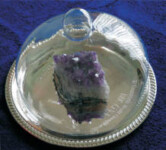
The two-part challenge resulted in a very close finish between first and second places, and our congratulations go to the winning duo Heather Knowles & Chris Cooper, and to all our competitors. We hope more of you will join in the annual competitions next year; if you don’t have a go, you might never realise your expertise in clue setting and/or grid design.
The clues were judged by Shirley and Charles Curran, whom we thank for their clear and interesting conclusions.
Awards will be presented at a lunch in Cambridge on 31st March 2022.
1. Grid Design
1st=: Heather Knowles & Chris Cooper (Calluna): This is an excellent grid containing a marvellously ingenious idea resulting in a very clever Easter Egg, making it an ideal crossword for our calendar. A theme of 21% seems low but will make perfect sense when spotted by our solvers.
1st=: Garry Stripling (Gin): Another marvellous grid with some excellent snakes, enhancing the overall design. 62% themed cells is high but does not detract from the difficulty or interest of this puzzle. There is a fun Easter Egg.
3rd: Rachel Sheldon (Rikki): A very good theme and an excellent Easter Egg make this a very interesting and well designed grid with a couple of very good snakes. 33% well-chosen themed words.
4th: Max Jackson (Xam): A well-designed and adapted grid with an interesting mix of themed words and some excellent snakes. A good mixture of themed words gives an impressive 59%.
5th=: Abby Braunsdorf (Absolution): A nicely designed grid with 54% themed words. This is an impressive start for a newcomer to grid design and includes a nice Easter Egg.
5th=: Alan Chamberlain (Komorník): A well-designed grid with a good balance of themed and non-themed words and two Easter Eggs. This grid would need careful clueing.
5th=: Jonathan Treml (Grumpy): From another newcomer to grid designing we are presented with a dramatically shaped puzzle with 100% themed words. This high percentage is not necessarily a drawback as the words couldn’t easily be guessed from a list.
2. Clue writing
Entrants were required to write clues for the following two phrases:
- Merry Gentlemen
- Silent Night
Below are the clues submitted with the judges’ ratings and comments.
Clues for MERRY GENTLEMEN:
Posh Robin’s gang scatter grey element (manganese) over river (5,9)
Max Jackson
anag GREY ELEMENT + MN round R.
Ref Robin Hood’s merry men.
manganese = Mn in an anagram might be deprecated by some.
COMMENDED. We understood that the setter added the posh so that the merry men (Hood’s gang) became merry gentlemen but this would be a difficult definition for a solver to grasp. The wordplay of the anagram produces one of those clues that an editor would reject since the surface sense is not plausible – why would Robin’s gang be scattering manganese over a river? – However, all the required letters of the anagrind material are there, which is a good start. We see no problem in solving the difficulty by using the Mn and R abbreviations.
Ideal partners for forlorn ladies? (5,9)
Garry Stripling
COMMENDED. We felt that there was a plausible definition here (though the solver might conceivably feel that forlorn ladies would wish for equally forlorn, or understanding gentlemen). We needed a little more wordplay to guide us towards the required solution.
Subject of Carol, heathen? Not I among Robin Hood’s gang. (5,9)
Abby Braunsdorf
VERY HIGHLY COMMENDED. We recognize that the compiler requires her solvers to remove I from GENTILE and Chambers gives ‘heathen’ as its third definition of Gentile so this works as a subtle and succinct clue.
Hood’s gang kidnaps peaceful drunkards (5,9)
Jonathan Treml
COMMENDED. A second concise clue. Again we felt that the compiler was requiring his solvers to make a couple of mental leaps – from ‘peaceful’ to ‘gentle’ and from ‘drunkards’ to ‘merry gentlemen’. Chambers gives ‘Enlivened by drink, tipsily cheerful’ as definitions of ‘merry’ and the compiler possibly needed to use a more precise term for his definition.
Hobbit smugglers feature in song (5, 9)
Rachel Sheldon
COMMENDED. We felt that using ‘Hobbit’ for ‘Merry’ was ‘defining by example’ which editors tend to frown on. We were not sure how ‘smugglers’ would lead the solver to ‘gentlemen’ (a reference, maybe, to ‘The gentlemen go by …’ and, as said of a clue above, ‘song’ could, as the definition part of the clue, be more precisely defined as, say, ‘carol’. However, a five-word clue is always to be applauded.
High spirited Cavaliers found in the King’s Head at closing time (5,9)
Heather Knowles & Chris Cooper
In the English Civil War both the Roundheads (Parliamentarians) and the Cavaliers (Royalists) used to billet their troops in alehouses, taverns and inns. As the progress of the war swung in favour of one side and then the other, an alehouse would change its name from say, the King’s Head to the Nag’s Head and back again.
HIGHLY COMMENDED. This clue stands out because of its very succinct and appropriate definition. The compilers’ little historical note is there to justify the compilers’ placing of these merry gentlemen in the ‘King’s Head’ but this historical text is slightly redundant in the context of a crossword clue where the wordplay ideally needs to verbally enhance the definition rather than give a second or double definition.
What follows incomprehensible term Rest ye, sung (can mean all this getting Santa Claus involved?) (5,9)
Alan Chamberlain
Comp. anag., semi & lit: (TERM REST YE SUNG CAN MEAN ALL)* = (MERRY GENTLEMEN + SANTA CLAUS)* – incomprehensible and involved are the two anagrinds; both the whole clue and this refer to MERRY GENTLEMEN, first as definition, then as anagram fodder.
Basically it’s putting across that hardly anyone who sings the carol understands what God rest ye merry, gentlemen actually means, and probably many (who have the vaguest idea of distinguishing God from Father Christmas anyway) think it means ‘God, please give these old chaps – including the generous one with the beard, cloak and quaint transport arrangements – who have turned up for the craic, and maybe a drop too much of the gluhwein, a nice festive holiday. It doesn’t, of course. The brackets are a bit of a typical Komorník cheat to make it work as an &lit when really there’s no hope of clueing it in any sensible way at all.
COMMENDED. The compiler rather shoots himself in the foot with his final comment ‘really there’s no hope of cluing it in any sensible way at all’. (I have been smartly put in my place by more than one editor who has responded to my comment of that nature by instantly producing a flawless clue!) The very complex subtractive anagram is clever with two subtly disguised anagram indicators but he could conceivably have improved the surface sense of his clue with a better choice than ‘incomprehensible’ – ‘cunning’, for example or ‘eccentric’ – something really indicating the anagram. In his long note, he justifies his choice of anagram indicator, but the solver is not going to understand the reasoning that leads the compiler to claim that his is ‘semi &lit.
Clues for SILENT NIGHT:
Carol is returning fast by Tesla (6,5)
Max Jackson
IS rev + LENT + NIGH + T. By = near = nigh might be a stretch but I think I’ve seen it used before.
VERY HIGHLY COMMENDED. This is, without question, a challenging pair of words to clue and this setter’s very succinct attempt deserves high praise. The carol definition is deceptively incorporated into the clue. Chambers (which has to be our Bible for all our clues) doesn’t exactly justify the by = nigh (it gives nigh as near to and by as only near) but the lovely surface sense of Carol driving that Tesla home in the dark really produces a smile.
Lancelot asleep cannot sing it reportedly (6,5)
Garry Stripling
HIGHLY COMMENDED. Here we were given adequate wordplay though we were not sure that the ‘asleep’ adequately hinted at ‘silent’ (yes, one could argue that ‘night’ is thematic here and that a sleeping knight suggests silence but solvers might need a more precise Chambers indication). ‘Reportedly’ guided us towards the spelling of NIGHT without the K for Lancelot and the definition was subtly incorporated in the simple ‘it’.
“Knight” pronounced “K” in song (6,5)
Abby Braunsdorf
COMMENDED. This is almost too subtle for us. We recognize that the K of ‘knight’ is silent, but possibly the setter needed to be more helpful to his solver with something like ‘How the K of Knight is pronounced when he features in …’ or something of that ilk, so that both words ‘silent’ and ‘night’ are given wordplay. ‘Song’ as the definition also caused us to quibble. The ‘carol’ this compiler used in her first clue is clearly more appropriate.
Carol’s unsung hero loses head (6,5)
Jonathan Treml
HIGHLY COMMENDED. The surface sense of this clue reads well with ‘Carol’ deceptively functioning as the lady and the Christmas song. We were not entirely convinced that ‘unsung’ would prompt the solver to think of ‘silent’ or that ‘hero’ would lead to a ‘knight’ but his losing his head to produce the ‘silent night’ is clever and succinct.
First light bewilders sitting hen at Christmas (6, 5)
Rachel Sheldon
COMMENDED. Technically, although we encounter clues by some professionals that use ‘mid March’ for R, for example, this is not in order. ‘The middle of March’ or ‘the end of summer’ (for R) is required. Thus ‘first light’ doesn’t produce an L. The anagram indicator also needs to be grammatically correct and this compiler required the words of ‘sitting hen’ to be ‘bewildered’ (not ‘bewilders’). We also needed more than ‘at Christmas’ as a definition. Again, though, praise is due here for succinctness.
Listening in despair — occasional hits on the back ensures no snoring (6,5)
Heather Knowles & Chris Cooper
HIGHLY COMMENDED. The clue earned a smile though we had trouble accepting that ‘Silent Night’ was defined by the words ‘No snoring’. Indeed ‘in despair’ was an entertaining anagram indicator and LISTENING was a fine find, with HiTs tagged on at the end to complete the night. Comedy and succinctness earn praise for this clue.
Performing this, tingle with the point of Nativity? (6,5)
Alan Chamberlain
Anagram indicated by performing: (THIS + TINGLE + N)* & lit: it is a moving piece: ref. lines from the carol radiant beams thy holy face with the dawn of saving grace.
HIGHLY COMMENDED. We decided that the ‘this’ of the clue was part of the anagram material but also an indication of an & lit. clue with the ‘moving piece’ adding to the definition, but a solver would be struggling to put together the ‘this’ with the moving piece’ to understand what he was looking for.
‘Performing’ is appropriate in the context of the carol and the anagram indicator and the compiler has considered the surface sense of his clue by incorporating ‘nativity’ though an editor might not accept ‘point’ as an indicator of the first letter.
Overall World Championship Winners

Combining both grid and clue results, first, second and third places for the World Championship are:
⭐ 1st: Heather Knowles & Chris Cooper — Grid 1st=; Clues HC/HC
⭐ 2nd: Garry Stripling — Grid 1st=; Clues C/HC
⭐ 3rd: Max Jackson — Grid 4th; Clues C/VHC